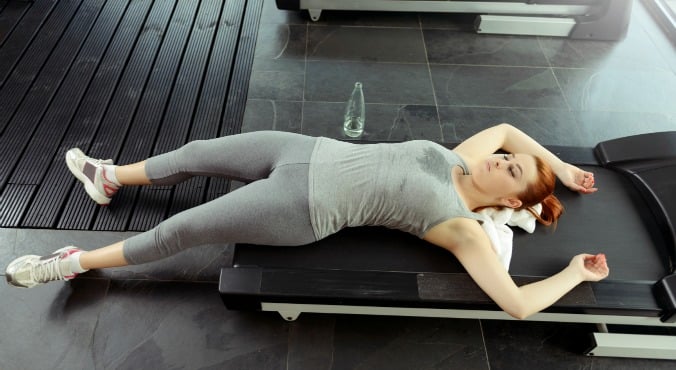
Image: iStock.
If you’ve ever encountered #fitspo memes, you’ve probably noticed they can be quite… intense. Actually, they can be kind of scary.
“Sore is the new sexy,” declares one quote currently floating around the Pinterest echo chamber. “Train insane or remain the same,” cries another. “Don’t stop when it hurts, stop when you’re done.” “Go hard or go home.” “My body says no more, my mind screams two more.” “No pain, no gain.”
RELATED: Is #Fitspo 2015’s most dangerous body image movement?
They’re meant to be inspiring, but if you took these statements literally you’d be forgiven for believing a workout doesn’t really count unless you’ve run your feet down to bloodied stumps, vomited up your breakfast, and collapsed in a heap.
Of course, exercise isn’t easy. It shouldn’t be — challenging yourself physically requires exertion, determination and yes, sweat. There’s often a level of discomfort involved, especially if you’re new to exercise, trying something new, or stepping up your regular workout.
However, there's an attitude that fitness results are synonymous with pain, suffering, and utter exhaustion— and that anything less than a 10 on the intensity scale is simply not worth the time. According to personal trainer Jonathan Angelilli, our culture's "obsession with aggression" has caused us to perceive exercise as a "war on the body", with soreness and exhaustion being the measure of victory.
RELATED: The 11 pieces of fitness advice you thought were true. They aren't.